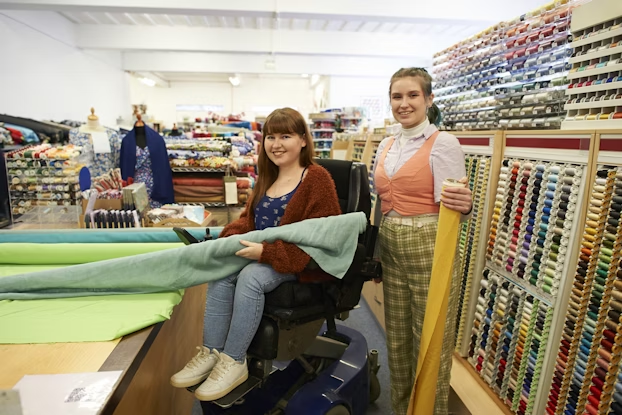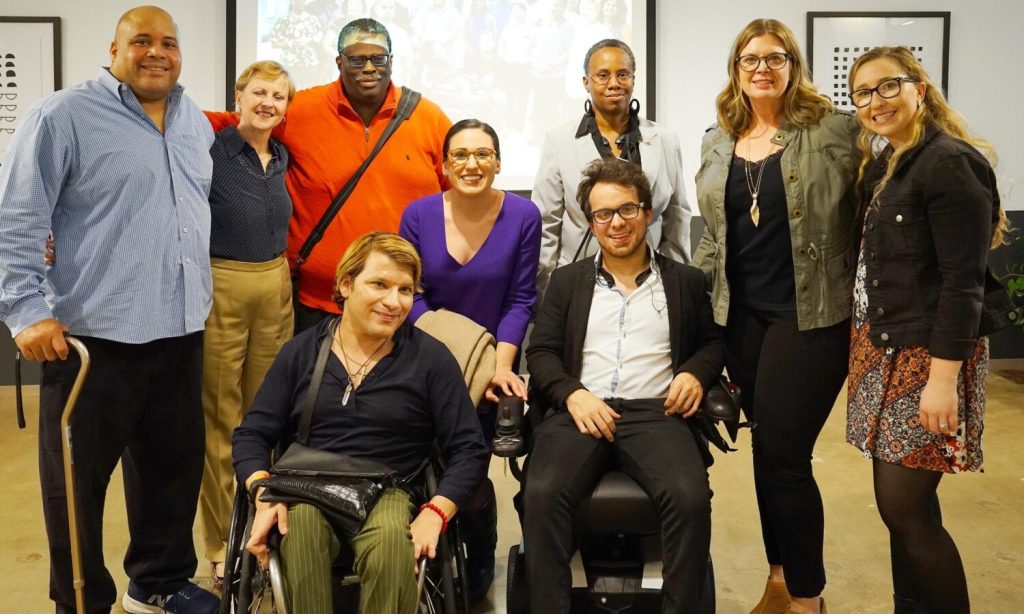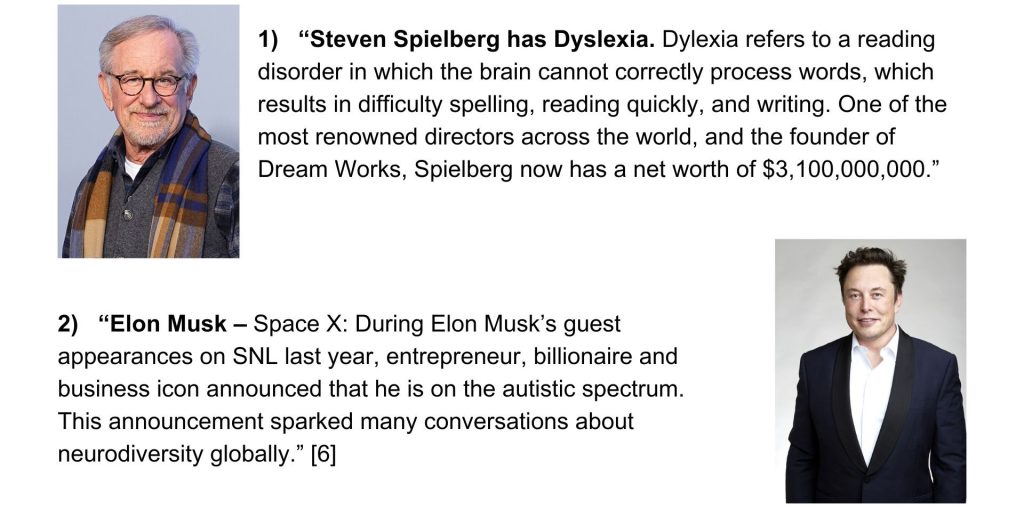
“The U.S. Department of Labor charts the unemployment rate for people with disabilities at 7.9%, compared to 3.8% for people without disabilities. Many factors account for this discrepancy, including inaccessible workplaces, ill-equipped office spaces and a deep-rooted bias against people with disabilities. This leads many in the disability community to seek alternate career paths, like entrepreneurship.” [1]
“Determination, innovation, resilience – these are just some of the key skills needed to become a thriving entrepreneur. And for lots of disabled people, these skills come naturally. Forced to adapt to a world that is not made for them, disabled people develop characteristics that are essential for business. So, when they take their perseverance and apply it to entrepreneurship, it’s often a magic formula for success.” [2]
Here are some key points to consider regarding entrepreneurship for people with disabilities:

- “Empowerment and Independence: Entrepreneurship can provide individuals with disabilities a sense of empowerment and independence by allowing them to be their own boss, set their own schedule, and make their own decisions. It offers theme the opportunity to create a business that aligns with their abilities, interests, and goals.” [3]
- “Leveraging Unique Perspectives: People with disabilities often have unique perspectives and insights that can lead to innovative business ideas.”[3]

- “Flexible Work Environment: Entrepreneurship allows for flexibility in creating a work environment that accommodates the specific needs of individuals with disabilities.” [3]
- Overcoming Barriers: While individuals with disabilities may face barriers, such as physical accessibility or negative perceptions, entrepreneurship can provide a platform to challenge and overcome these barriers.
- “Access to Technology: Technology plays a crucial role in facilitating entrepreneurship for people with disabilities. Advancements in assistive technology, communication tools, and online platforms have made it easier for individuals to start and run businesses from anywhere. Accessible websites, mobile apps, and digital marketing strategies can help entrepreneurs reach a broader customer base.” [3]

- Support Networks and Resources: Various organizations, communities, and government initiatives exist to support entrepreneurs with disabilities. These networks provide mentorship, training programs, funding opportunities, and resources tailored to their specific needs.
- “Disability-Inclusive Business Practices: Entrepreneurs with disabilities can prioritize inclusivity within their businesses. By designing accessible products or services, implementing inclusive hiring practices, and promoting diversity, they can become champions of inclusivity and set an example for other businesses.” [3]

6 Funding Opportunities for Disabled Entrepreneurs
“There are over 1.8 million disabled business owners in the United States, many of whom may need to overcome barriers to entrepreneurship that their abled counterparts don’t have to consider.
Here’s a list of funding sources, programs, and resources to help them succeed.” [4]
1) “Plan to Achieve Self-Support (PASS) Program: The Plan to Achieve Self-Support (PASS) is a federal program designed to ease disabled individuals into the workforce, eventually allowing them to rely less on federal supplemental security income. “ [4] https://www.ssa.gov/disabilityresearch/wi/pass.htm
2) “Small Disadvantaged Business program: The Small Disadvantaged Business program is another federal incentive that disabled entrepreneurs can take advantage of to grow their businesses.” [4] https://www.sba.gov/federal-contracting/contracting-assistance-programs/small-disadvantaged-business
3) “Service-Disabled Veteran-Owned Small Business (SDVOSB) Program: Similarly, the federal government also awards at least 3% of federal contracting dollars to Service-Disabled Veteran-Owned Small Businesses (SDVOSB).”[4] https://www.federalregister.gov/documents/2022/11/29/2022-25508/veteran-owned-small-business-and-service-disabled-veteran-owned-small-business-certification
4) “Accion Opportunity Fund: Disabled entrepreneurs can also lean on the Accion Opportunity Fund, a nonprofit community lender that offers small business loans to disadvantaged communities. [4] https://aofund.org/small-business-loans/
5) “National Association for the Self-Employed (NASE): The National Association for the Self-Employed (NASE) offers business grants and opportunities specifically for disabled entrepreneurs.” [4] https://www.nase.org/
6) Assistive technology business loans: Assistive technology can be essential for people with disabilities and yet is often prohibitively expensive. https://ataporg.org/
Learn more about the benefits of small business membership in the U.S. Chamber of Commerce: https://www.uschamber.com/join/small-business-membership

Highlighting Inspiring Examples of Disabled Entrepreneurs


“In a world that’s not built for inclusive access, disabled people continue to demonstrate their perseverance and dynamic attitudes to work. And although these characteristics serve disabled people well in entrepreneurship, they would also benefit existing businesses across all sectors.” [2]
Resources
[2] https://meaningful.business/spotlight-on-disability-and-entrepreneurship/
[3] https://www.bridgesrc.org/entrepreneurship-and-people-with-disabilities/
[4] https://www.uschamber.com/co/run/business-financing/funding-options-for-disabled-entrepreneurs
[5] https://www.wishup.co/blog/10-entrepreneurs-you-didnt-know-were-dyslexic/
[7] https://www.rouzbehpirouz.com/5-successful-female-entrepreneurs-who-also-happen-to-be-disabled/
